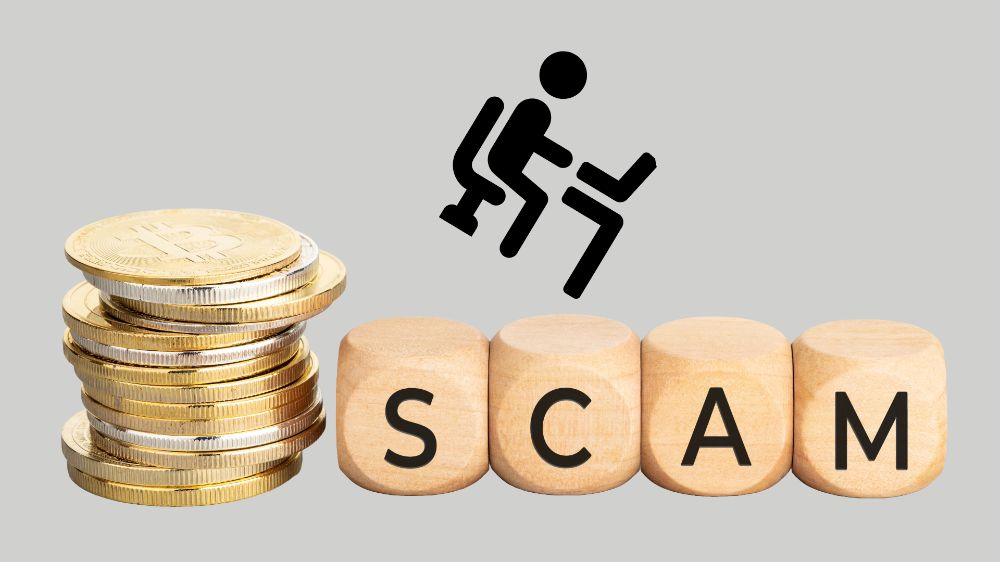Ghost Jobs: A 10-Step Primer On the Complete Loss of Consideration for Job Seekers

Almost a year ago I listened to a BBC program about graduate unemployment. During the episode, two of the grads started talking about the large number of fake jobs and about how most jobs were not real. I wondered what they meant by so many fake jobs.
I was so young and innocent back then.
I genuinely had no idea what they were talking about.
However, things have changed. Now, unfortunately, I know all about the world of fake jobs, ghost jobs or phantom jobs. To save you from becoming a victim of this disturbing new trend in human resources, here is a primer on the world of ghost jobs.
What is a ghost job?
A ghost job is an online listing for a job that doesn’t exist. A ghost job is a job that an employer posts online but has no intention of hiring anyone for. These job ads often appear on the popular job boards like Linkedin.com, ziprecruiter.com, Indeed.com and monster.com. If you haven't gotten a reply, even to tell you that you didn't get the job, it may be a ghost job.
Why do employers post fake jobs?
Now that you know what a ghost job is, you may be wondering, “Why would somebody post a fake job that doesn’t exist on a job board?”
There are several reasons why employers may post a fake job online.
1) To Look Good: By posting jobs, it makes it looks like you’re hiring because the company is doing well and the company is growing. It is like sending a social signal about the health of your company. “Surely business must be good.” Otherwise, why would you need to be hiring?
2) To Meet HR Work Quotas: Hiring Managers have to fill a quota of work that they’ve done each month and they can just pump out a fake job listing to you to say they’ve listed the required number of jobs.
3) To Keep an always available talent pool on tap: This means if they need someone six months from now, they can remember how great your resume looked.
4)To Collect Data About You: This reason falls into the category of scam job and not strictly ghost jobs and so this will be explored more in a future article.
Who are some of the companies posting ghost jobs?
The website ghostedd.com has many stories of job seekers who believe they have been the victim of a ghost job listing. An extensive alphabetical list of these companies can be found on the site at ghostedd.com. If you are looking for work, or have seen some suspicious behaviour from a company, it may be worth your while to have a look at this list. It may also be comforting to know that you are not alone because many other job seekers have experienced this.
Which news outlets have reported on the ghost jobs trend?
Since this trend has emerged, prominent newspapers like Forbes.com, Theregister.com, fortune.com. cnbc and cbsnews.com have all been staying on top of this dangerous job trend.
Who is enabling the ghost job trend?
Hiring managers are complicit in allowing this to continue. Hiring managers have convinced themselves that this heartless practice is OK and that it is just what you have to do to keep a talent pool available when you need it.
When interviewed and asked about Ghost Jobs, hiring managers not only openly admit that they do it, they provide valid reasons why they do.
Hiring managers have even tried to describe posting ghost jobs as moral.
The Pandemic and the difficulty hiring managers have in finding talent have also been given as excuses. However, this is sort of like my local supermarket explaining away their $8.00 for a loaf of bread as supply chain issues created by the pandemic.
It is false. If this were the reason, why is this still continuing long after the pandemic?
None of the reasons given for this practice are valid.
This practice will continue until the day a hiring manager says, “This is wrong. This is preying on people who are desperate to find work. It affects the mental health of every person I do it to, and it needs to stop.”
How to tell if a job is a ghost job?
There are three ways to tell if a job is a ghost job.
1) The listing is more than 30 days old. This means that the company just put it up there and kind of forgot about it because they never had any intention of filling it.
2) The listing that you saw on a job board is nowhere to be found on the company’s website in the careers section.
3) Research the Company. If they’re doing it to you, they’ve likely done it to someone else and hopefully that someone else complained on another site like Reddit.com or Ghostedd.com
Where can I go for support if I’ve applied for a ghost job?
Talk to a career counselor about your experience. A career counselor may be a paid counselor or the free kind that you can talk to at a school or government-run job finding office.
Discuss your job search and some positions that you are interested in. They may be able to spot some of the red flags that normal people miss and they may be able to provide some guidance on how to avoid these jobs in the future. Also, talking to someone about this may also help to deal with the stress of finding out that you just wasted your time applying for a non-existent job.
How do ghost jobs hurt existing employees at a company?
Some of the hiring managers interviewed claimed to use ghost job listings to keep current employees “Motivated”. This means that they want their current employees to live in constant fear of losing their job. They want their current employees to go on one of these job boards, see their job listed and think, “I think my job may be in danger.” They are hoping that it will make employees walk around on egg shells if they know they could be let go at any time because a new hire ready to take their job is around the corner.
So you see, ghost jobs don’t just hurt applicants. They also hurts existing employees who are forced to work in an environment of fear, stress, and insecurity.
Is a ghost job the same as a mandatory external posting?
No. There are times when a company posts a job listing online because legal requirements force them to advertise all jobs both internally and externally. This is not a ghost job. A ghost job does not exist. Noone will ever get that job internally or externally.
Is posting a ghost job legal?
This is a tricky question. We have established above that posting a ghost job is evil, unethical and immoral. However, is it illegal?
Let me break this down.
There are three laws that could affect Ghost Jobs:
1) Laws around Fraud
2) Laws around advertising
3) Laws around the GDPR
According to some, fraud means using dishonest means to acquire money. Since no money is taken from you during a ghost job, it could not be prosecuted as fraud.
However, according to Justice.gov’s legal resources manual:
“The statute does not define the phrase "obtained by fraud." Fraud is defined by nontechnical standards and is not to be restricted by any common-law definition of false pretenses. One court has observed, "[t]he law does not define fraud; it needs no definition; it is as old as falsehood and as versatile as human ingenuity." Weiss v. United States, 122 F.2d 675, 681 (5th Cir. 1941), cert. denied, 314 U.S. 687 (1941). The Fourth Circuit, reviewing a conviction under 18 U.S.C. § 2314, also noted that "fraud is a broad term, which includes false representations, dishonesty and deceit." See United States v. Grainger, 701 F.2d 308, 311 (4th Cir. 1983), cert. denied, 461 U.S. 947 (1983).”
There are also laws affecting advertising. A job ad is a kind of advertising. Therefore, a ghost job could be considered a kind of false advertising.
In the United States, for example, false advertising falls under the jurisdiction of the FTC.
However, this is the problem, the current definition of false advertising applies to products and services. A job is neither. This would make it difficult to file a complaint on the basis of false advertising.
A ghost job involves collection of your data and could fall under the GDPR.
You may have heard of the GDPR. It governs how online companies can collect and use your data.
The 7 main rights include rights like the main one you have already heard of which is the right to ask a company to delete all your data that they’ve collected.
If you dig around a little bit more inside the GDPR, you’ll find another term that could help job seekers.
It is called “Grounds for Legitimate Interest”
Here is the explanation in full from the European Commission.
“As a company/organisation, you often need to process personal data in order to carry out tasks related to your business activities. The processing of personal data in that context may not necessarily be justified by a legal obligation or carried out to execute the terms of a contract with an individual. In such cases, processing of personal data can be justified on grounds of legitimate interest.
Your company/organisation must inform individuals about the processing when collecting their personal data.
Your company/organisation must also check that by pursuing its legitimate interests the rights and freedoms of those individuals are not seriously impacted, otherwise your company/organisation cannot rely on grounds of legitimate interest as a justification for processing the data and another legal ground must be found.”
If you are posting a job that exists, that would be a legitimate interest. If you are posting a fake job that does not exist, that would not be a legitimate interest in my opinion. The only way that it could be so is if at the bottom of the job description you explain to the applicant, “This is not a real job. We are just building up our available talent pool.” Then the applicant willfully applies knowing no job exists because they have a legitimate interest in being a part of your talent pool.
Regardless of how a job seeker could choose to penalize an employer who has posted a ghost job, the trickiest part of all of this is even proving that the employer did it.
Thankfully, a few legal minds realize that ghost jobs are a problem and a conversation has opened up about how to make posting a ghost job illegal.
This is an important conversation and needs to continue as long as it takes to get a law passed.
As you may have guessed, I firmly believe in penalizing companies that advertise ghost jobs. It is hurtful. It makes life worse for people who are already dealing with the harsh realities that come with being unemployed. It is dishonest. It is cruel.
It is unnecessary, and it needs to stop.
When you’re quiet, they win. Share your experience with the topic. But First, read our community guidelines before sharing.

